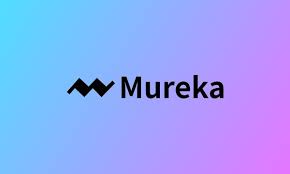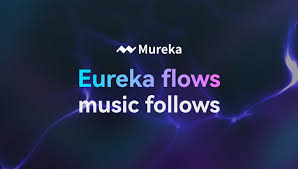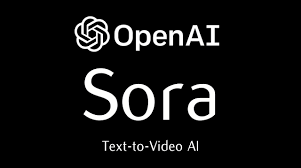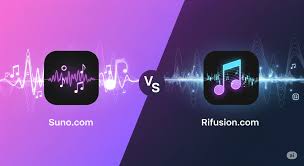If you're exploring the world of AI music generators, you’ve likely come across Mubert and Aiva. Both platforms promise to help you create original music using artificial intelligence—but their approach, target users, and output styles are fundamentally different.
So what is the difference between Mubert and Aiva? The short answer: Mubert is designed for real-time generative background music, while Aiva is built for composing structured musical scores that sound like they were written by a classical or cinematic composer.
In this guide, we’ll break down the core differences between Mubert and Aiva, including their use cases, technology, pricing, and who each platform is really built for.
What Is Mubert?
Mubert is a real-time AI music generator that creates royalty-free tracks on demand, based on genres and moods. Rather than composing traditional sheet music, Mubert produces seamless audio streams by combining professionally recorded audio samples through algorithmic logic.
Use case: Background music for YouTube, TikTok, podcasting, apps, games
Music style: Lo-fi, electronic, ambient, corporate, pop
Output: Loopable tracks, instant download (MP3 or WAV)
Interface: Text-based or parameter-based generation via web app or API
License: Royalty-free, commercial use allowed (depending on your plan)
Think of Mubert as the Spotify of AI-generated background music. It’s perfect for people who need quick, legal music without composing anything manually.

What Is Aiva?
Aiva (Artificial Intelligence Virtual Artist) is an AI composer platform that creates music in structured formats like sheet music, MIDI, and orchestral scores. It uses machine learning trained on classical and cinematic music libraries to compose original pieces.
Use case: Soundtracks for films, trailers, ads, games, and creative scoring
Music style: Cinematic, orchestral, jazz, classical, piano
Output: Sheet music, MIDI, downloadable audio
Interface: Visual composition editor with track layering and musical structure
License: Royalty-free for personal and limited commercial use, with premium plans unlocking extended rights
Aiva is closer to a film composer in your browser—great for those who want more creative control and musical depth.

Key Differences Between Mubert and Aiva
Let’s break it down category by category so you can clearly see the difference between Mubert and Aiva.
| Feature | Mubert | Aiva |
|---|---|---|
| Music Style | Electronic, ambient, lo-fi, pop | Orchestral, cinematic, classical, jazz |
| Output Format | MP3/WAV | MIDI, sheet music, WAV, MP3 |
| Customization | Genre, mood, duration | Chord progression, instrumentation, time signature |
| Real-Time Generation | ? Yes | ? No (pre-composed or iterative) |
| Best For | Content creators, streamers, developers | Composers, game devs, filmmakers |
| API Access | ? Available | ? No API |
| Commercial License | ? (paid plans) | ? (premium plans) |
| Ease of Use | Instant and beginner-friendly | Intermediate to advanced |
| Visual Composition Tools | ? No | ? Yes |
| Pricing | Freemium + Pro tiers | Freemium + Composer/Pro tiers |
Use Cases: When to Use Mubert vs Aiva
Still wondering what the difference between Mubert and Aiva means for you in practice? Let’s walk through a few real-world scenarios.
Scenario 1: You’re a YouTuber
If you need copyright-safe background music for videos, vlogs, or tutorials, Mubert is the better fit. You can generate and download tracks instantly with no musical knowledge.
Scenario 2: You’re scoring a film or trailer
If you need cinematic, emotionally complex music with full control over arrangement and chord progression, Aiva is the right choice. You can tweak every part of the composition before exporting.
Scenario 3: You’re a game developer
Use Mubert’s API to dynamically generate background music that adapts to player behavior. But for boss battle music or in-game cutscenes with more structure, Aiva will give you the tools to compose unique scores.
Scenario 4: You want to make music but can’t play an instrument
Both platforms help, but Mubert is easier for non-musicians. Aiva assumes you’re at least familiar with basic composition concepts.
Pricing Breakdown
Mubert Pricing (2025)
Free Plan (Ambassador): 25 tracks/month, personal use only
Creator Plan: ~$14/month, commercial license, no watermark
Pro Plan: ~$39/month, broader license, lossless formats
Enterprise API: Custom pricing
Aiva Pricing (2025)
Free Plan: Personal use, limited generation
Standard Plan (~€15/month): Commercial use, full export
Pro Plan (~€49/month): Extended license, advanced tools
Both platforms offer generous free trials, but the difference lies in what you're creating. Mubert is more affordable for casual creators, while Aiva is priced more like a digital audio workstation with built-in AI composition features.
Final Verdict: What’s the Difference Between Mubert and Aiva?
If you're still asking what is the difference between Mubert and Aiva, here’s the final summary:
Mubert is for creators who want quick, royalty-free music they can use right away. It’s instant, flexible, and fits modern content workflows.
Aiva is for composers and storytellers who need musical depth, structure, and creative control. It’s ideal for cinematic and thematic projects.
They both generate music using AI—but the way they define music is completely different.
If you’re working on fast-paced content like YouTube videos or mobile games, go with Mubert. If you’re creating something narrative, emotional, or orchestral, Aiva is worth exploring.
Frequently Asked Questions
Can I use both Mubert and Aiva for commercial projects?
Yes, but only on their paid plans. Mubert’s Creator and Pro plans support commercial licensing. Aiva also offers commercial rights with their Standard and Pro tiers.
Which platform is better for beginners?
Mubert is much easier to use. You don’t need to know anything about music. Aiva requires some familiarity with musical structure and arrangement.
Can I get MIDI files from Mubert?
No. Mubert provides audio (MP3/WAV) only. For MIDI and sheet music exports, Aiva is the better choice.
Do Mubert or Aiva have mobile apps?
Mubert offers a mobile app called Mubert Play for streaming AI music. Aiva is strictly browser-based for now.
Can I use these tools in game development?
Yes. Mubert offers an API for dynamic music generation. Aiva is often used for in-game soundtracks and cinematic scoring.
Learn more about AI MUSIC








